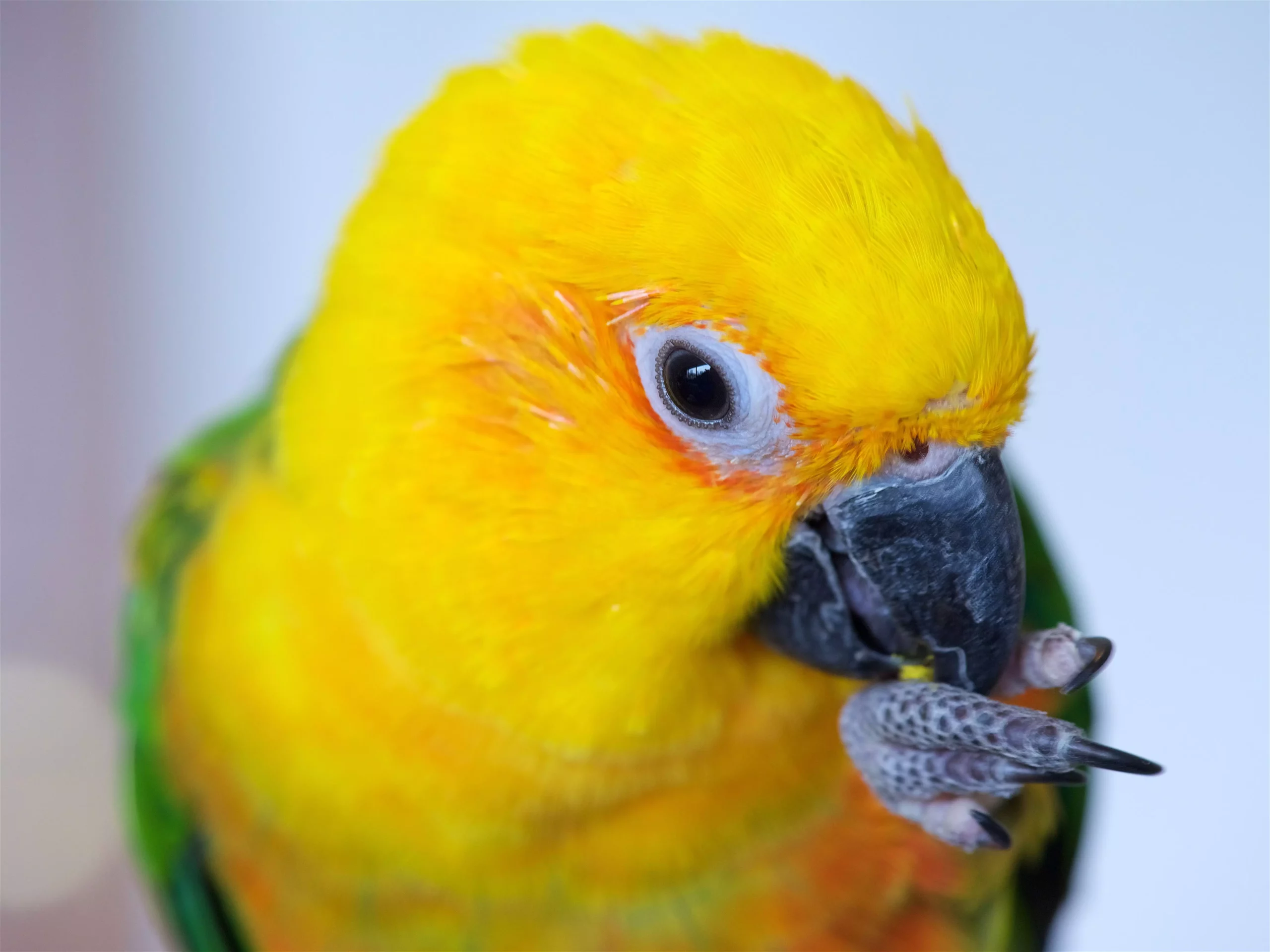Jenday conures, often referred to as jandaya parakeets or yellow-headed conures, are captivating and affectionate pets. With their vibrant plumage and dynamic personalities, these birds leave a lasting impression on anyone interested in avian companionship. As potential owners explore the idea of introducing a jenday conure into their lives, it is crucial to weigh the joys they offer against the responsibilities they entail.
One cannot overlook the visual spectacle presented by jenday conures. Their bright red-orange bodies, adorned with gleaming green wings and a sunny yellow head, create an enchanting sight. These small parrots, measuring about 12 inches in length, are particularly esteemed for their lively demeanor and affection towards their human companions. Their social nature makes them suitable family pets, particularly for those capable of dedicating ample time for interaction.
Beyond their striking appearances lies an engaging personality. Jenday conures are known for their playful behaviors, making them ideal candidates for individuals who appreciate spirited interactions. Owners who invest time in socializing and bonding with their jenday conures will find these birds to be loyal and loving partners. However, potential owners must ensure they can commit numerous hours a day to their bird; neglect can lead to behavioral issues such as screeching and irritability.
Native to the woodlands and palm groves of northeastern Brazil, jenday conures are creatures of habit, commonly found venturing in small flocks. Their preference for high nesting sites within tree hollows reflects their need for security and social interaction. Interestingly, the name “jenday” originates from the Old Tupi language, meaning “small parrot,” emphasizing their petite yet lively nature.
The fact that jenday conures are a protected species in their natural habitat further highlights their significance. Capture and trade are prohibited to preserve their populations, and this factor should be considered by potential owners. Owning these birds not only fulfills a personal desire for companionship but also aligns with the responsibility of supporting conservation.
As with any pet, providing an appropriate living environment is paramount to the well-being of jenday conures. Contrary to what one might assume about their size, they require spacious habitats conducive to their active lifestyles. A minimum spatial requirement of 3 feet in length and 2 feet in width and height is essential. This will afford them necessary room to stretch their wings. In instances where multiple jenday conures are kept, doubling this space is advisable to foster harmony and prevent territorial disputes.
Moreover, allowing jenday conures daily out-of-cage time for exploration can significantly contribute to their mental stimulation. Engaging in safe play with toys, swings, and climbing structures can help them unleash their playful energy while averting boredom-related behaviors.
Dietary needs for jenday conures extend beyond mere sustenance – they require a balanced intake that mimics their natural foraging behaviors. In the wild, their diet consists primarily of fruits, seeds, and nuts. In captivity, they thrive on a pelleted diet supplemented with fresh fruits and vegetables. It is vital to keep their food bowls clean and regularly wash their cages to ward off potential health issues.
Despite their hardy nature, jenday conures are vulnerable to several illnesses, including Psittacine beak and feather disease and respiratory infections. Owners should diligently observe their pets for any signs of illness, such as lethargy, appetite loss, or unusual feather loss. Early intervention through consultation with an avian veterinarian is crucial in safeguarding their health.
Jenday conures possess a keen intelligence that invites training and interaction. While they may not be as verbally talented as larger parrots, they are adept at recognizing household sounds and can learn simple tricks. Engaging them in training enhances their mental acuity and strengthens the bond with their owner. Consistent interaction and positive reinforcement are key to cultivating desired behaviors.
However, it’s vital to be aware of their vocal nature. Without sufficient attention, jenday conures may resort to loud, attention-seeking calls, which can be challenging for owners living in close quarters or apartments.
Before welcoming a jenday conure into your home, exhaustive consideration of personal circumstances is essential. Confirming the absence of legal restrictions on ownership in your area is crucial, as some regions require permits while others outright ban the species. Furthermore, a prospective owner should seek a healthy, hand-fed bird, as early socialization greatly influences future behavior.
Ultimately, jenday conures offer a delightful mix of charm, playfulness, and affection. They can bring joy and companionship to those willing to invest time and care into their well-being. Recognizing the requirements of this beautiful parrot ensures a fulfilling relationship for both bird and owner, paving the way for a colorful addition to any household.

